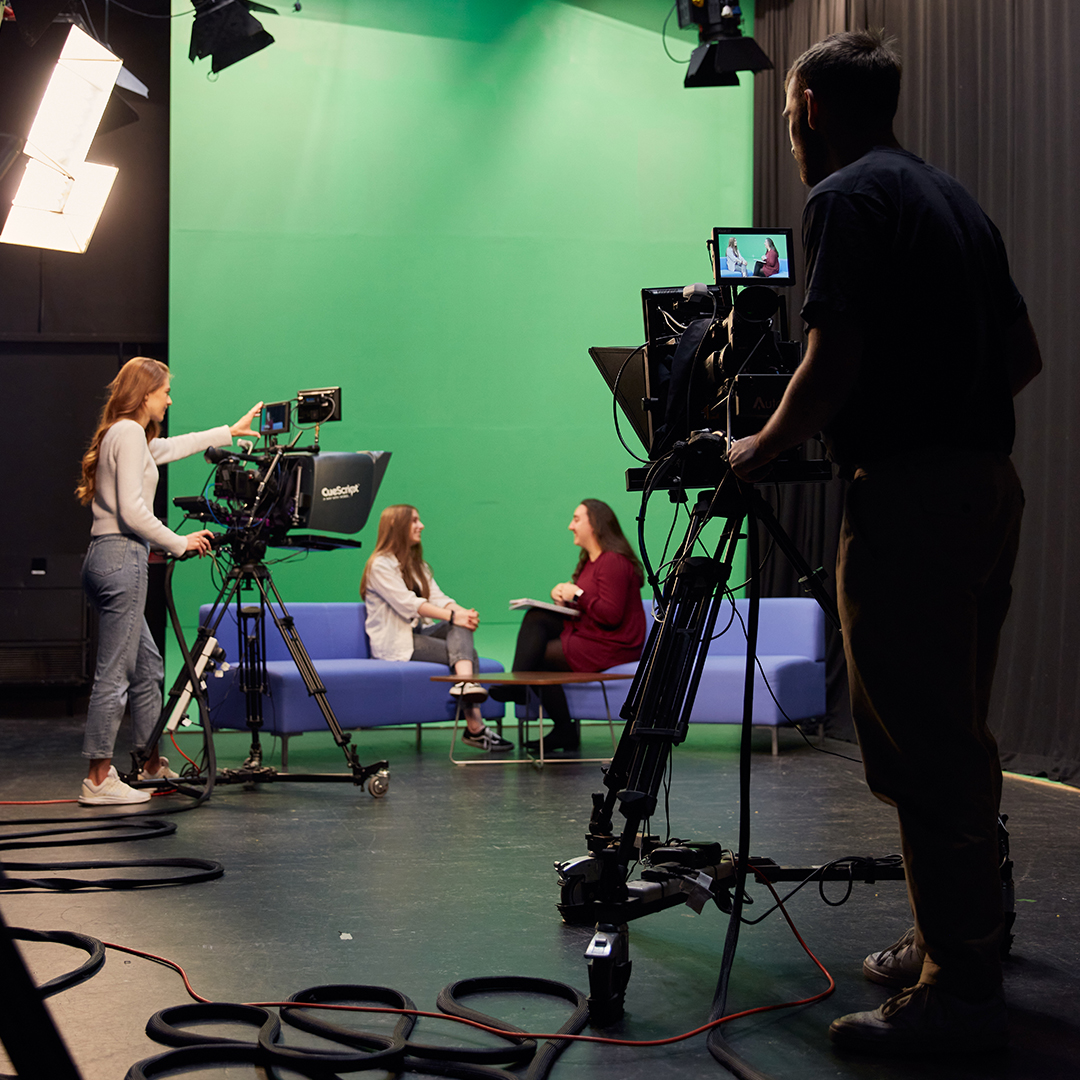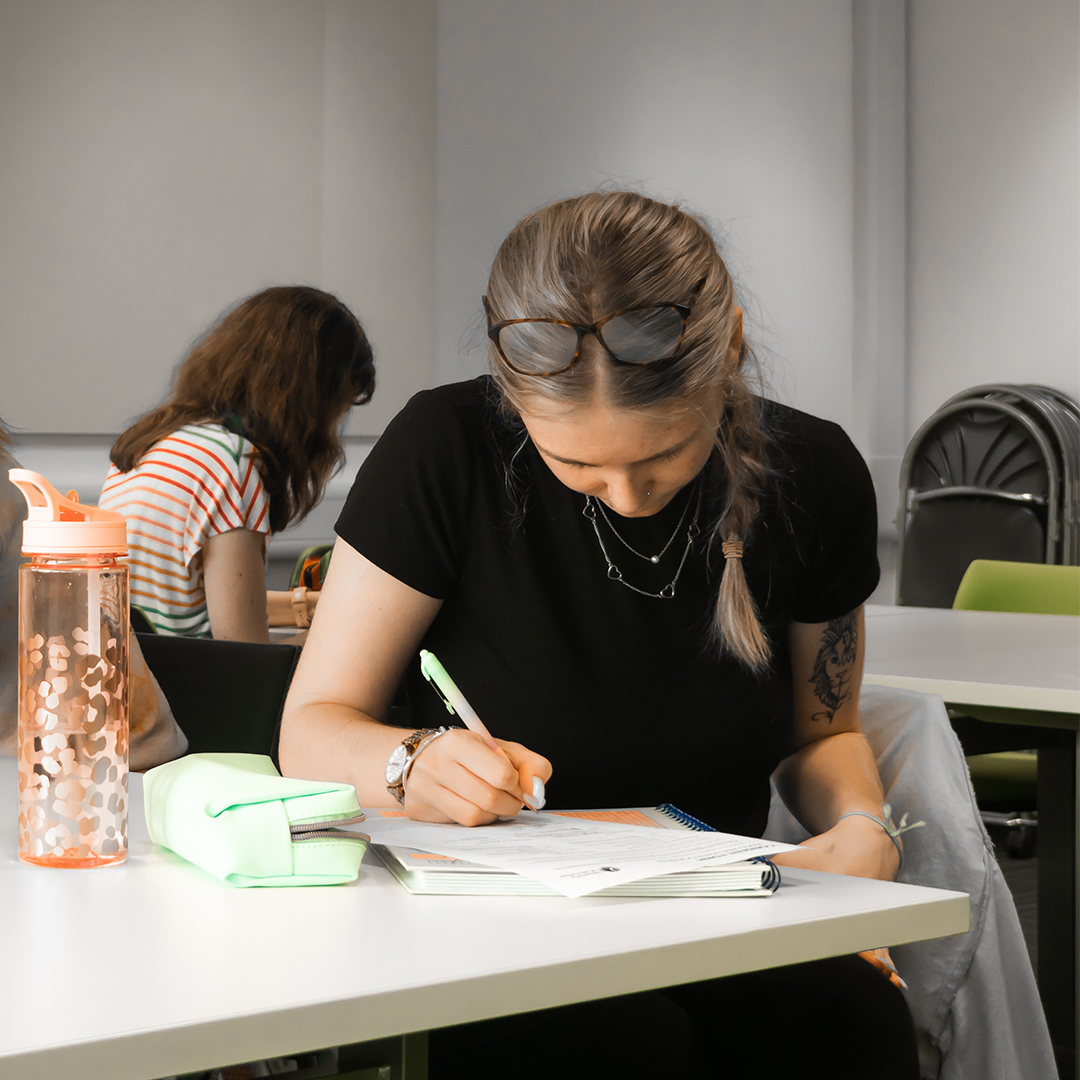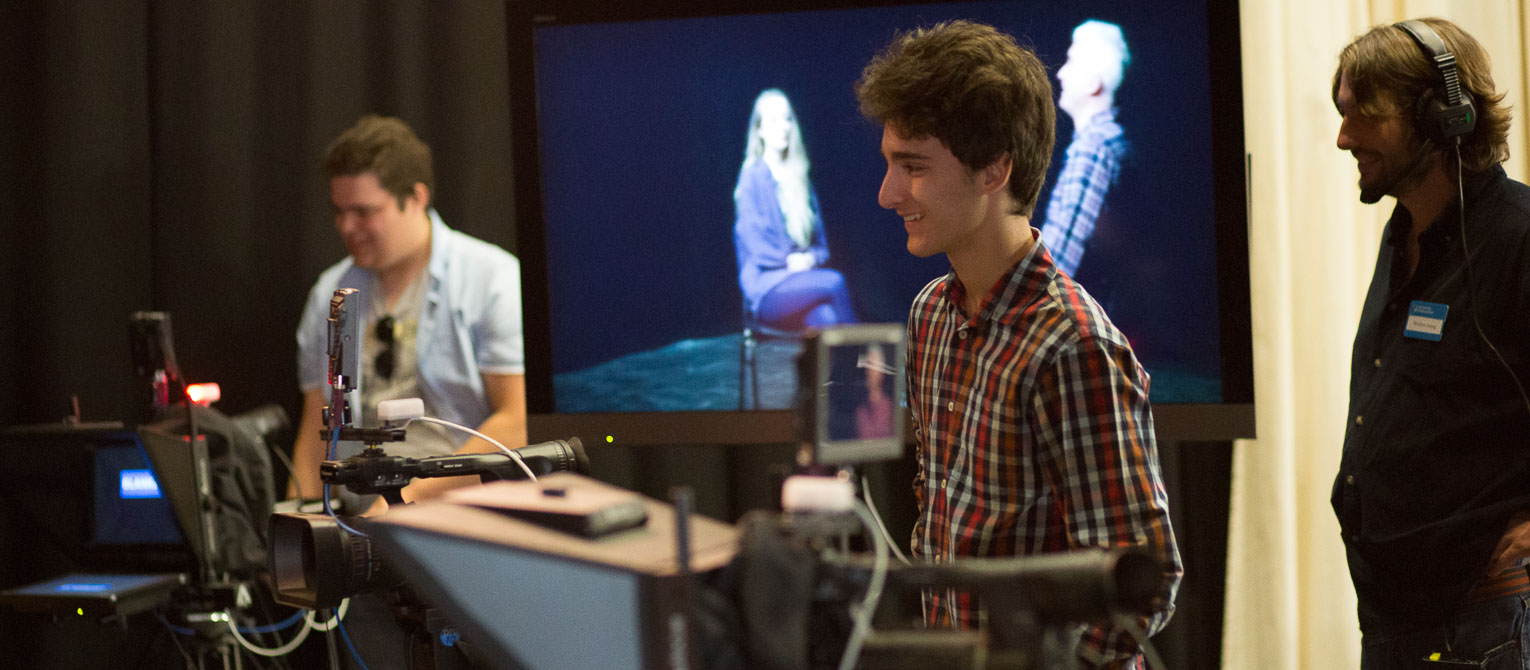Whether your interests lie in short film, storytelling, factual, film or music video production – we’ll help you turn your passion into a practical skill set and portfolio opening up a range of careers.
of students said it was easy to access subject-specific resources when they needed to
in the UK for Quality Education
First for jobs
The University of Worcester is first in the UK for sustained employment, further study or both, five years after graduation (excluding specialist institutions) - Longitudinal Educational Outcomes Survey 2024. Read more.
Overview
Our filmmaking course embraces all areas of film - from documentary and fiction, to artist's film production and critical writing. We believe in learning through doing - so from the very beginning, you'll become part of a close-knit creative team, making films exactly as you would in the industry.
Digital technology has changed the way that film is conceived and produced. You'll explore different techniques and establish yourself in a key specialist role, such as production design, visual effects, animation, directing, cinematography, editing or sound.
The experience of studying film with like-minded people in an arts environment will help to fuel your creativity and give you a wide network of invaluable contacts for your future career.
Course content
Our courses are informed by research and current developments in the discipline and feedback from students, external examiners and employers. Modules do therefore change periodically in the interests of keeping the course relevant and reflecting best practice.
The most up-to-date information will be available to you once you have accepted a place and registered for the course. If there are insufficient numbers of students interested in an optional module, this might not be offered, but we will advise you as soon as possible and help you choose an alternative.
Optional modules
Careers
Our film graduates typically pursue career routes into media, including:
- Employment in production companies working in TV
- Film or commercial production
- Further specialised training in a specific industry-related job role
- Working as a freelancer
- Setting up your own small business
Our multi-strand course gives you the opportunity to take your study in a particular direction and/or to achieve a portfolio of skills and knowledge that is attractive to potential employers and clients.
The array of transferable skills associated with the subject ensures that graduates are well qualified for a range of alternative career paths.
You may also wish to progress to postgraduate study with our Film MRes or Creative Media MA.
Course highlights
Teaching and Assessment
You'll learn through a mixture of independent study, teaching and academic support through the personal academic tutoring system. This enables you to reflect on progress and build up a profile of skills, achievements and experiences that will help you to flourish and be successful.
Teaching and assessment contents
Throughout the course you will be taught through a variety of methods. These will focus around small informal lectures on a topic and then a viewing, discussion or practical exploration of the topic. As film making is at the heart of what we do we put film making at the core of as many sessions as possible so that you, the student, get as many hours behind the camera as possible.
In addition, meetings with personal academic tutors are scheduled on at least four occasions in the first year and three occasions in each of the other years of a course.
There will also be master classes from industry professionals, screenings and trips to widen your learning throughout the course.
Meet the team
Entry requirements
UCAS tariff points required: 104
| Qualification | Grade |
|---|---|
| A-level | BCC |
| BTEC National Extended Diploma | DMM |
| T-level | Merit |
Any questions?
If you have any questions about entry requirements, please call our Admissions Office on 01905 855111 or email admissions@worc.ac.uk.
Fees
Fees contents
UK and EU students
The Government has announced that it will increase tuition fees and maintenance loans by 3.1% from the 2025/26 academic cycle. Subject to approval, the University intends to increase our tuition fees in line with this and as per our terms and conditions. This means that from September 2025 the standard fee for full-time home and EU undergraduate students on BA/BSc/LLB degrees and FdA/FdSc degrees will be £9,535 per year for new and continuing students.
For more details on course fees, please visit our course fees page.
International students
The standard tuition fee for full-time international students enrolling on BA/BSc/LLB degrees and FdA/FdSc degrees in the 2025/26 academic year is £16,700 per year.
For more details on course fees, please visit our course fees page.
Student case studies
Some recent graduates reflect on their time on the course.
How to apply
How to apply contents
Applying through UCAS
UCAS is the central organisation through which applications are processed for full-time undergraduate courses in the UK.
Read our how to apply pages for more information on the application process, or if you’d like to apply for part-time study.
Filmmaking BA - W612
Contact
If you have any questions, please get in touch. We're here to help you every step of the way.

Admissions Office
admissions@worc.ac.uk01905 855111More to explore
Open Days
Visiting us is the best way to get a feel for student life at the University of Worcester.

The City of Worcester
Worcester is a welcoming university city with great transport links and plenty of student parking.

Accommodation
Benefit from our accommodation guarantee. We have rooms on campus to suit every budget including en-suite options.











